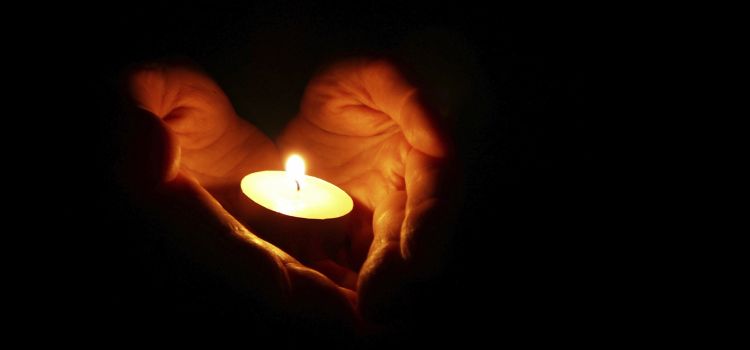
Hello everyone,
Welcome to the latest issue of our church newsletter. Our newsletter is sent out regularly to share reflections from services, Bible readings and church news to our church family. You can find previous issues on our church website here.
Our newsletter will be posted fortnightly over the school summer holiday period. The next issue of the newsletter will be posted on 1st September.
We would love to hear from you and are always looking for uplifting and encouraging content to share in future issues of this newsletter. If you have any ideas or content that we can share, please do email them to Louise (publicity@christchurchuxbridge.org.uk)
Opening Prayer
Gracious God,
your tender, kind, compassionate love
hugs the whole of your creation.
May we let that love heal us
and, unblocked, within us,
flow out to all we meet. Amen.
(Taken from Roots)
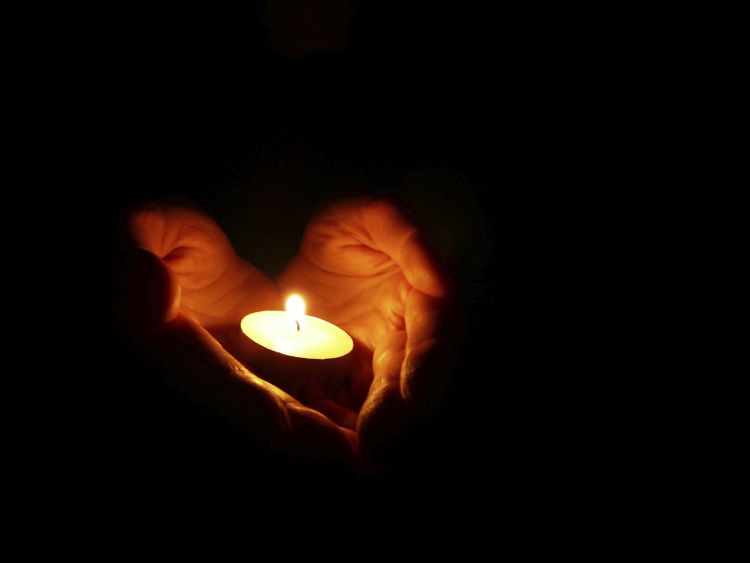
Reflection from 13 August: Which bit am I?
Reading – 1 Corinthians 12: 12-27
One body with many members. We all have different skills, different talents. We have different shortcomings as well. Nobody is self-sufficient. But everybody has got their place. Today’s scripture reading follows that theme. One body with many parts, but I’m posing the question: “Which bit am I?” Which bit am I in this body? The text says that in Christ we are one by the Spirit. We are baptised into one body, no matter who we are, no matter where we come from, no matter our perceived differences or status, no matter our age or anything else. Galatians 3: 28 puts it like this: “There is no longer Jew or Greek, no longer slave or free, no longer male and female. For all of you are one in Christ Jesus.”
We are all one. But we are not the same. I am me and you are you and that is the way God intended it. Surely that’s the reason that God in God’s wisdom created humankind in all our diversity, with our different gifts and skills and talents and our shortcomings.
No one is self-sufficient. We need each other. And so we see this imagery of the one body with its many members, each with their own function, each with their own purpose, their own gifting, all arranged in the body according to God’s will, all of value and all to be valued. We heard in the scripture that no part can say to another, “I don’t need you,” because each and every part is needed. And if one part says I am too good or too lowly or too anything else to be part of the body, that doesn’t stop it from being part of the body. Whether the function seems big or small, all have got their part, all belong. Even me with my questionable singing skills, I have my part and my place.
I’m going to share with you the message that I have and there might be things where you find that you think you disagree with me. There might be things that you find challenging. There might be things that you think actually “Amen.”
The Council for World Mission (CWM) is an umbrella body of which the United Reformed Church is a part. And in 2017, CWM embarked on a conscious journey of engaging with transatlantic slavery. Not only the history of transatlantic slavery, but the continuing impacts for communities and for our world today. CWM held a number of hearings in four regions of significance in transatlantic slavery. They are the UK, Ghana, Jamaica and the United States. And what those hearings were doing was looking at the history, uncovering hidden aspects of history, but also engaging with local communities to hear their experiences, their reflections as to how the legacies of transatlantic slavery continue to impact them today. As a member Church of CWM, the URC participated in all four hearings, and I personally was part of the London and the Ghana hearings. That was before I took on my present role. I was a local church member at that point.
In 2018, CWM published its project findings, which included thirty recommendations arising from the work and primarily CWM was seeking to engage with its own findings. But it was also encouraging its member churches to engage as they felt able, and so it was that the United Reformed Church created a Legacies of Slavery task group to look at the project findings, to look at the report and make recommendations under three headings which emerged from the project’s work. The three areas were apology, reparations, and engagement with white privilege. I was invited to be part of that task group.
The task group explored the question should the URC offer an apology in respect of transatlantic slavery, the role played by our forebears in transatlantic slavery? But more so, should we offer an apology for our complicity in the continuing legacies of transatlantic slavery today, our failure to get rid of the inequalities and injustices in both church and society? The task group recommended a resounding yes. We should offer an apology. We considered whether the URC should offer some sort of reparations or repair injustice in respect of slavery and its continuing legacies, and again we concluded a clear yes. Why? Because apology alone can amount to empty words. Acts of repairing justice would give concrete outworking to the words of the apology. With regards to the question of how might the URC engage with the issue of white privilege, the task group again was unanimous in the conviction that white privilege is at work in our church and in UK society, and that we should engage in a continuing process to recognise it, name it, and work to dismantle it in our midst and in our communities.
The task group was small. It was very diverse. It was men and women. It was black and white. It was lay and ordained. It was all of us together in that small group. And I recognise that today I’m speaking very much from a URC standpoint, and I know that Christ Church is a Methodist and UC congregation, but I also know that what I’m saying has relevance for both denominations. In my role I work with and alongside Methodist colleagues, and I’m aware that the Methodist Church. Is engaging with the same issues that the URC has been engaging with, as are several other Christian denominations.
The Corinthians text proved extremely significant for the task group as we grappled with the three questions. We drew on this imagery of the church as one body with many parts, and we wondered “Who is which part? Which of us are the eyes, the ears, the mouth? Which of us are the arms? Who are the legs? Who are the bits which have been and still are most visible? Who are the bits which are most highly regarded the most greatly honoured?”
And what felt clear to us in the task group was that repeatedly black people have been relegated to the position of the little toe. Out of sight. Mainly forgotten. Generally considered to be of little or no consequence. But we asked ourselves, and I ask you, what happens if you stub your little toe? It hurts. That little toe, that little insignificant part, can bring tears to the eyes. It can bring the whole body to its knees. The little toe needs care, but most of the time it’s forgotten.
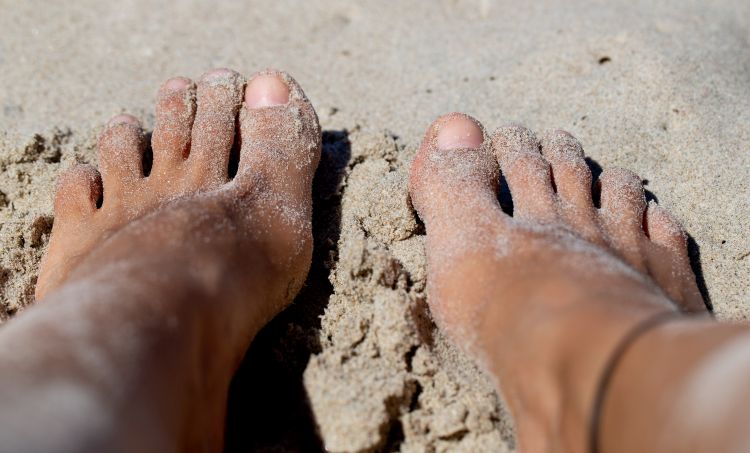
The task group noted that this has been the situation facing black people for far too long. I’ve been repeatedly surprised during the past few years as we’ve been engaging with the legacies of transatlantic slavery how many people cannot see or understand or interpret the word legacies. People who would ordinarily see themselves as being literate, but they cannot see or read that word. They raise the argument repeatedly that transatlantic slavery was terrible, yes, but it’s in the past and we need to get over it, we need to move on. We know transatlantic slavery was in the past, but that moving on bit is exactly the point. Transatlantic slavery established black people as the little toe of the body, if that much, and centuries later, black people are still constantly relegated to the position of the little toe. That bit that we think doesn’t really matter; that bit to which we often don’t give a second thought.
We often overlook the little toe, but apparently the body needs the little toe for balance, for standing up, and the body needs the little toe for propulsion, for being able to move forward. So the little toe is actually essential, but we often don’t realise that unless or until it is damaged or removed. I don’t want anyone to misunderstand what I’m saying today, because I’m not saying that it’s necessarily the case that the little toe is being deliberately stamped on, although there are some big, bad bullies who will do that kind of thing. Putting it back in terms of racism and race relations, racism is much less prevalent than in the past. But while the other parts of the body which are deemed to be valuable or beautiful or precious are given particular care and attention to keep them that way, the little toe may be harmed by being overlooked. We may be so busy trying to make the foot look stylish, trying to create an overall image and maintain the overall image, that a little toe ends up crammed into a space in which it is not OK, a space in which it cannot breathe, and space in which it suffers damage because it is rendered unable to simply be. The overall picture looks good, but the little toe is suffering. Doesn’t that sound a lot like how structural racism works? We’re not conscious of the bits that are hurting and continuing to be heard and continuing to be overlooked. The little toe is of little consequence until it causes the body pain.
Consider the outrage in some corners when people dared to assert a few years ago that Black Lives Matter. Suddenly there were cries that all lives matter, and isn’t it racist to say that Black Lives Matter? But I have a question. Where was the drive to make the assertion that all lives matter over the decades that black people around the globe have been treated as if they matter less, as if they have less value, have been overlooked? How come the voices that wanted to assert that all lives matter were not saying that message until the other voices started to say Black Lives Matter? They weren’t saying only Black Lives Matter. I think what they’re really saying is Black Lives Matter too. But people took offence at Black Lives mattering. Why?
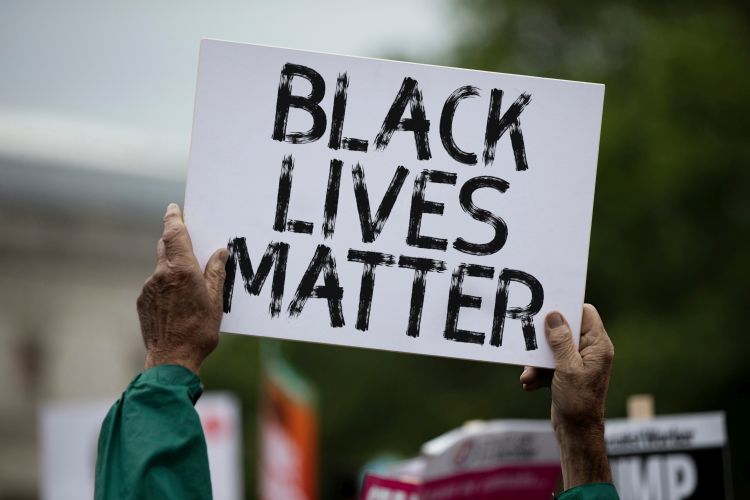
Black lives around the globe have been treated as being dispensable for decades upon decades; treated as having less worth. Our Bible text today says those members of the body that we think less honourable we clothe with greater honour and our less respectable members are treated with greater respect. I want to ask this question in the context of racial justice. When are we going to start living that out? When are we going to give greater honour to those who have been cast as less deserving of respect and honour? If not now, then when?
When we were exploring and considering and researching about an apology for the legacies of transatlantic slavery, there were many voices that found it objectionable. And I have some questions. Why is an apology for the past and for the present wrongs, so objectionable to some parts of our body? And who has the right to decide which part in the body is played by who? Who decides that this person is an eye and that person is the nose and the other person is the heart? Is it God apportions the status? Or do we apportion the status to each other? And in fact, do we sometimes presume to apportion the status to ourselves? Again, I don’t want anyone to get me wrong. Because I believe, and I know that every part of the body is valuable and there is nothing wrong with the little toe being a little toe. But could it be that we have been asking members who could and should be carrying out a central function to be satisfied with being confined to the hidden and undervalued role of a little toe? Where are the body’s ears when God is calling some of those members to something more or something else? And could it be that some of those members who are entrusted to function as major organs are in fact gifted with the attributes of an appendix? Take from about what you wish. Who has the right to decide? Who presumes the right to decide?
In the URC’s 51-year history, how many of the URC’s General Secretariat, our senior leadership, has been black or from an ethnic minority background? None. The General Secretariat has always been completely white. This July saw the induction of only the second black person to serve as Moderator of URC General Assembly. That’s kind of like the official face of the URC. There are 13 Synod moderators at any time, but there has only ever been one Synod moderator who was not white.
I remember talking with someone who pondered whether the all-white group of people serving as Synod moderators were simply the people that God has happened to call to this role. And I’ll tell you now what I told that individual then. While I have no doubt that it’s God who calls, it is human beings and human processes which appoint. God put all in the body according to God’s will, but I do not for a second believe that God chooses for black people to be continually absent from positions of leadership and decision making and influence in our church and beyond. And if it’s not God’s will, then it is a situation which needs to be challenged and changed. Hence the current work within the URC regarding positive action towards becoming an anti-racist church seeking to address this imbalance and seeking to address this injustice. There has been and there is important work going on in the Methodist Church and in the other denominations too.
We are called to be one body. We claim to be one body. But do we really mean it? If so, why then does naming the issues referring to legacy of transatlantic slavery cause some of us to burn with anger; to declare these issues are non-issues; to prompt some people to threaten to leave the church if we pursue this work? What happened to being part of a body in which if one part hurts all parts hurt? If I explain that parts of our body are hurting and have been hurting for a long time, while it may be difficult to hear, how can that pain be deemed a non-issue to other members of the same body? How can the response be to turn away or threaten to leave the body in which we’ve heard we are inextricably linked?
Last year, after much work by the task group, the URC General Assembly did adopt a statement of confession and apology regarding the legacies of transatlantic slavery, and I want to say I was delighted but delighted was not the emotion that I felt. I think what I felt was relief because as we received the news that the resolution had been adopted, I had the sensation of being able to breathe. It was as if I had been holding my breath without even realising it, and I don’t know for how long. The positive response to the legacy of slavery work felt like affirmation that you will see is, after all, a body in which I can have belonging. A body of which I can be a part. And building on that apology, having committed to in principle to acts of repairing justice or putting right, General Assembly this year adopted a resolution which will see anti-racism training become mandatory for various groups of people in the URC who occupy positions of leadership and influence. The training will seek to open eyes to the ways in which the little toe of black people continue to be injured, often inadvertently, and once people are aware, we hope to see things change as they work in whichever ways their roles enable to relieve the pressure and redress the status quo.
We are different members, but we are one body. I am me. You are you, exactly as God intended. But God also intended that all parts should be honoured. All parts should be cared for and cared about. There should be no difference in life chances or quality of life based on the colour of a person’s skin or the land in which they were born, or the accent with which they speak. No longer Jew nor Greek, no longer slave nor free. No longer male and female because all are one. I believe that image is God’s intention for the whole of humanity. But surely, surely, surely it should start with the church.
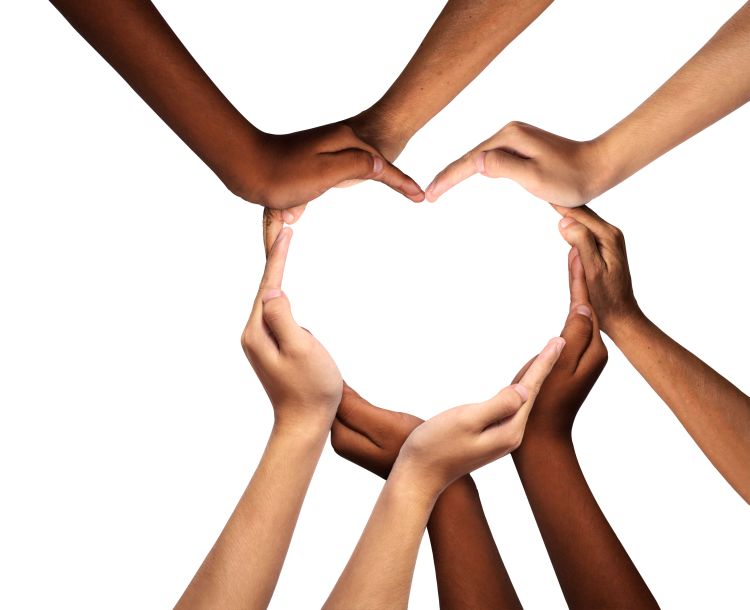
Let us pray.
When will be the acceptable time, Lord? When will be our day of salvation? Why must we wait and wait and wait for the time of justice and equity? When we don’t need to question whether or not black lives matter, whether or not all lives matter. We know all lives matter to you, Holy God, but what about in our world? Our societies, in your church? When will obstacles cease to be put in the way of some, the norms to which they must conform, the hoops to be negotiated, to belong or to progress? Make us ashamed of our public piety, lofty words and good intentions which fail to result in lasting change. Teach us truth in our inward beings that we may live justice in our outward lives. Hear the cries of a myriad weary hearts. Great God. Hear the cries. Amen.
Karen Campbell, URC Secretary for Global and Intercultural Ministries (Mission)
Readings for 20 August
Matthew 15: 21-28
The Faith of a Canaanite Woman
21 Leaving that place, Jesus withdrew to the region of Tyre and Sidon. 22 A Canaanite woman from that vicinity came to him, crying out, “Lord, Son of David, have mercy on me! My daughter is demon-possessed and suffering terribly.”
23 Jesus did not answer a word. So his disciples came to him and urged him, “Send her away, for she keeps crying out after us.”
24 He answered, “I was sent only to the lost sheep of Israel.”
25 The woman came and knelt before him. “Lord, help me!” she said.
26 He replied, “It is not right to take the children’s bread and toss it to the dogs.”
27 “Yes it is, Lord,” she said. “Even the dogs eat the crumbs that fall from their master’s table.”
28 Then Jesus said to her, “Woman, you have great faith! Your request is granted.” And her daughter was healed at that moment.
Further readings from the lectionary this week are as follows:
- Isaiah 56: 1, 6-8
- Psalm 67
- Romans 11: 1-2a, 29-32
Readings for 27 August
Matthew 16: 13-20
Peter Declares That Jesus Is the Messiah
13 When Jesus came to the region of Caesarea Philippi, he asked his disciples, “Who do people say the Son of Man is?”
14 They replied, “Some say John the Baptist; others say Elijah; and still others, Jeremiah or one of the prophets.”
15 “But what about you?” he asked. “Who do you say I am?”
16 Simon Peter answered, “You are the Messiah, the Son of the living God.”
17 Jesus replied, “Blessed are you, Simon son of Jonah, for this was not revealed to you by flesh and blood, but by my Father in heaven. 18 And I tell you that you are Peter, and on this rock I will build my church, and the gates of Hades will not overcome it. 19 I will give you the keys of the kingdom of heaven; whatever you bind on earth will be bound in heaven, and whatever you loose on earth will be loosed in heaven.” 20 Then he ordered his disciples not to tell anyone that he was the Messiah.
Further readings from the lectionary this week are as follows:
- Isaiah 51: 1-6
- Psalm 138
- Romans 12: 1-8
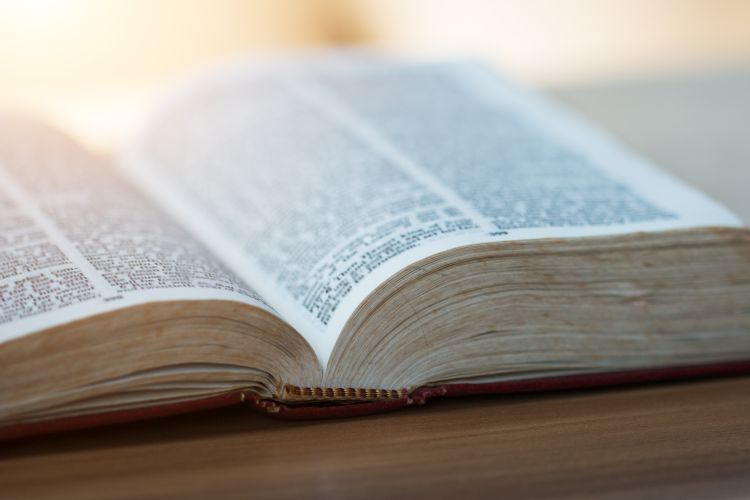
Our worship
We meet at 11am for our Sunday services, which are also live-streamed on our Facebook page. If you wish to view our services online, you can find them at www.facebook.com/christchurchuxbridge. You do not have to be a Facebook user to watch them – our services are publicly viewable. You can also view a recent service on our church website. Our service this week will be led by URC lay preacher, Lilian Evans. You can find the order of service here.
If you are unable to join us in person or online for our Sunday services, but would like to receive a recording of them on a memory stick to watch at home, please let us know.
Forthcoming services
20 August – Lilian Evans (URC lay preacher)
27 August – Revd Dr Claire Potter (Methodist minister) – Holy Communion
3 September – Christ Church worship group
10 September – Christ Church worship group
Church charity news
Table-top sale – Saturday 23rd September, 10am – 3pm
There will be a table-top sale in aid of our church charity, Communicare Counselling Service, on Saturday 23rd September 2023, 10 am to 3pm.
Trestle tables will cost £10 each. I shall be selling my goods in aid of Christ Church funds. If you wish to book a table, please contact me on 07810 433986 or the church office.
Jean George
You can find more details about Communicare Counselling Service, our church charity for 2023 at:
https://christchurchuxbridge.org.uk/activities/churchcharity2023
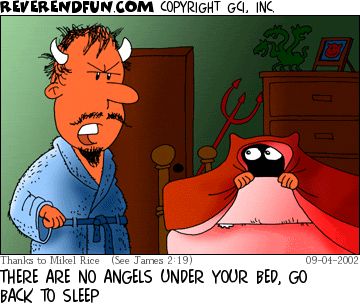
The Little Mermaid
Thursday 24 August, 7.30pm
Friday 25 August, 2.30pm and 7.30pm
Saturday 26 August, 2.30pm and 7.30pm
Come and join Sophie, one of our CCK members, and her friends on a magical musical journey ‘Under the Sea’ for the Beck Summer Youth Project’s production of Disney’s ‘The Little Mermaid’.
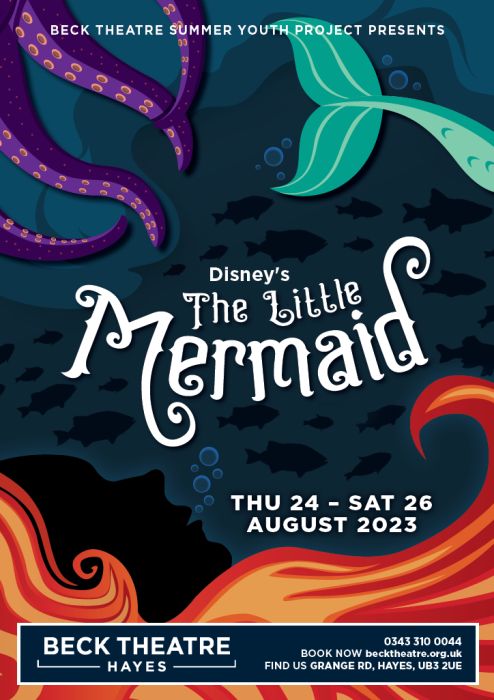
Based on one of Hans Christian Andersen’s most beloved stories and the classic animated film, Disney’s The Little Mermaid is a hauntingly beautiful love story for the ages. With music by eight-time Academy winner Alan Menken, lyrics by Howard Ashman and Glenn Slater, and a compelling book by Dwight Wright, this fishy fable will capture your heart with its irresistible songs including Under The Sea, Kiss The Girl and Part Of Your World.
Ariel, King Titan’s youngest daughter, wishes to pursue the human Prince Eric in the world above and bargains with the evil sea witch, Ursula, to trade her tail for legs. But the bargain is not what it seems and Ariel needs the help of her colourful friends Flounder the fish, Scuttle the seagull, and Sebastian the crab to restore order under the sea.
Sophie will be understudying the role of Flounder and performing the role on Friday 25 August at the 2.30pm performance. She will also be performing in the ensemble in the other productions.
Ticket are available from the Beck Theatre or online at https://becktheatre.org.uk/Online/tickets-syp-hayes-2023 with ticket prices starting at £17.50.
Dates for your diary
10 September – Congregational meeting
23 September – Table-top sale in aid of Communicare Counselling Service
30 September – URC Learning Hub (focusing on small groups and intentional relationships)
14 October – Quiz night in aid of Communicare Counselling Service
19 November – Congregational meeting
Children’s Corner
Complete the crossword (based on Matthew 16: 13-20).
Down
1D) Which district does the story take place in?
2D) One of the prophets mentioned is called ____
3D) On this rock I will build my ____
4D) Simon ____
Across
1A) Who speaks to his disciples in the story?
2A) Peter will be given the keys to the kingdom of ____
3A) One of the prophets mentioned is called _____
4A) Elijah and Jeremiah are known as ____
5A) Jesus’ followers are known as ____
6A) Peter will be called the ____ on which the church will be built.
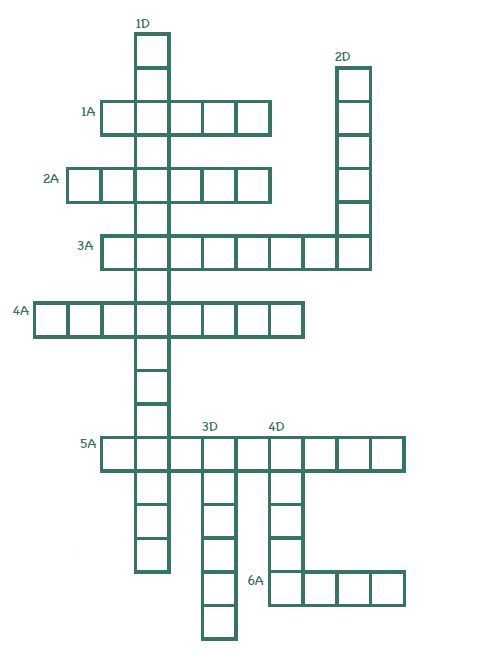
Praying for other churches
This week we hold the Harrow & Hillingdon Methodist Circuit staff during their busiest time of year, as they focus on Ministerial changes, the end of the financial year and prepare for the start of the new administrative year. We also pray for the ministers who are joining the Circuit or changing locations or roles.
Closing prayer
Lord of all hopefulness,
Lord of all joy,
Lord of all we have and are,
Inspire us by your Spirit to be a part of your mission.
Amen.
(Taken from The Vine)
